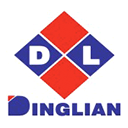Efficient Connectivity: Maximizing Utility with Plug Connectors
Introduction:
Plug connectors play a crucial role in today's interconnected world, enabling efficient connectivity and maximizing utility across various industries. By providing a secure and reliable connection between devices, plug connectors ensure seamless communication and power transmission. In this article, we will explore the different aspects of efficient connectivity with plug connectors and how they contribute to maximizing utility.
1. The Importance of Efficient Connectivity
Efficient connectivity is vital for businesses and individuals alike. In an era where technology drives productivity and innovation, seamless communication and reliable power transmission are essential for smooth operations. Plug connectors provide the necessary link between devices, ensuring efficient connectivity that enables the flow of data, signals, and power.
2. Types of Plug Connectors
Plug connectors come in various types, each designed for specific applications. Some common types include USB connectors, audio connectors, HDMI connectors, and power connectors. USB connectors, for example, are widely used for data transfer and charging devices. Understanding the different types of plug connectors and their compatibility is essential for maximizing utility.
3. Design Considerations for Plug Connectors
The design of plug connectors plays a crucial role in ensuring efficient connectivity. Factors such as contact resistance, insulation, durability, and ease of use must be considered during the design process. High-quality materials and precision engineering are essential to minimize signal loss, prevent overheating, and ensure long-term reliability.
4. Plug Connector Standards
Standardization is essential for interoperability and compatibility between devices. Various organizations, such as the USB Implementers Forum and the International Electrotechnical Commission (IEC), establish standards for plug connectors. Adhering to these standards ensures seamless connectivity and compatibility across different devices and manufacturers.
5. Advantages of Plug Connectors
Using plug connectors offers several advantages. Firstly, they provide a secure and reliable connection, minimizing the risk of data loss or power interruptions. Secondly, plug connectors are modular, allowing for easy installation and replacement. This modularity also enables scalability and future upgrades without significant disruptions. Additionally, plug connectors are cost-effective as they eliminate the need for customized wiring solutions.
6. Plug Connectors in Industrial Applications
Efficient connectivity with plug connectors is particularly crucial in industrial applications. Industries such as manufacturing, automation, and telecommunications heavily rely on plug connectors to ensure uninterrupted power supply, reliable data transmission, and efficient control systems. The use of standardized plug connectors simplifies maintenance, reduces downtime, and enhances overall productivity.
7. Plug Connectors in Consumer Electronics
In the realm of consumer electronics, plug connectors are ubiquitous. From smartphones to televisions, these devices rely on plug connectors for charging, audio/video output, and data transfer. The compact size and versatility of plug connectors make them ideal for consumer electronics, enabling seamless integration and effortless connectivity.
8. Plug Connectors for Renewable Energy Systems
Renewable energy systems, such as solar and wind power, heavily rely on plug connectors to ensure efficient power transmission. Plug connectors enable the interconnection of solar panels, wind turbines, and inverters, facilitating the flow of clean energy into the grid. By maximizing utility and simplifying installation, plug connectors contribute to the widespread adoption of renewable energy sources.
9. Future Trends in Plug Connector Technology
The future of plug connectors looks promising, with ongoing advancements aimed at maximizing efficiency and utility. Miniaturization of connectors, improved data transfer rates, and the integration of smart features are among the trends shaping the industry. Additionally, the development of wireless plug connectors shows potential for further enhancing connectivity and convenience.
10. Conclusion
Efficient connectivity is crucial for maximizing utility in today's interconnected world. Plug connectors play a vital role in enabling seamless communication, reliable power transmission, and overall productivity. By understanding the different aspects of plug connectors, including their types, design considerations, standards, and advantages, we can harness their full potential and unlock new possibilities across industries and applications.

